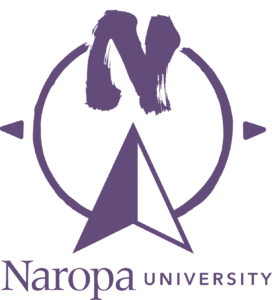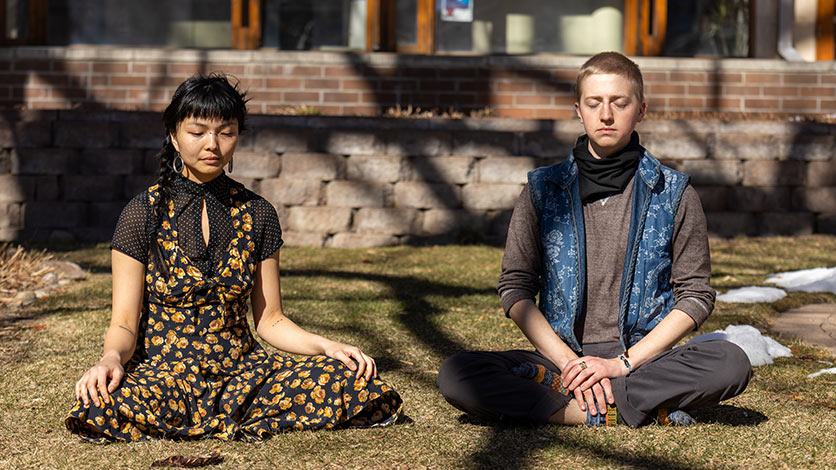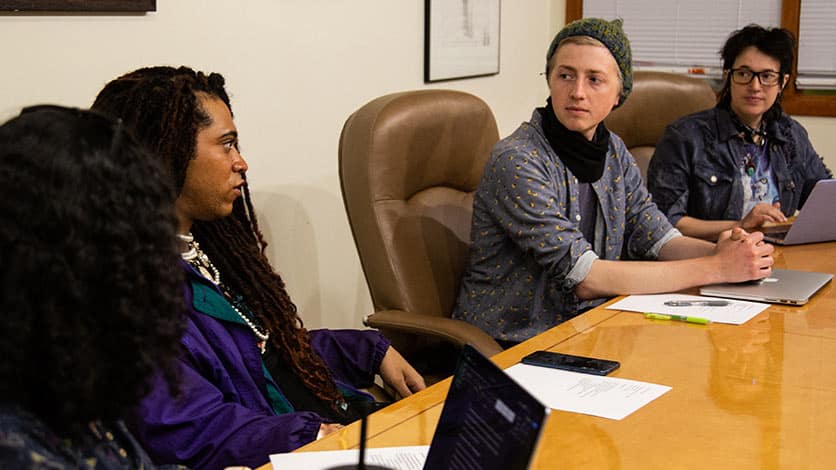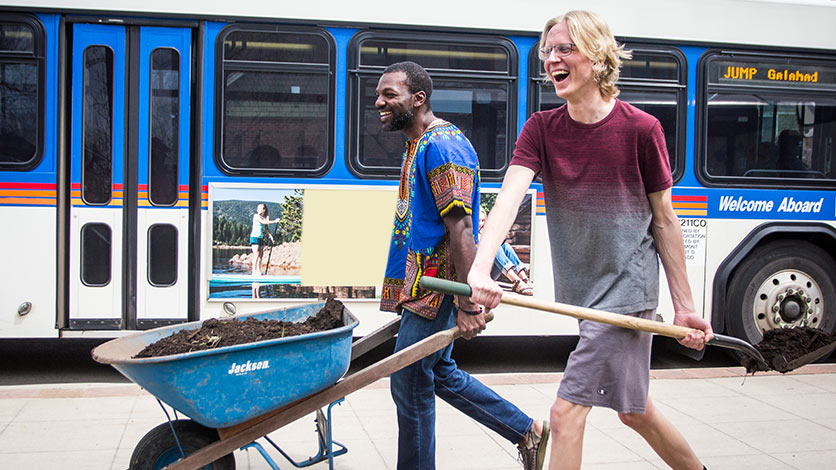Purpose, Vision, Mission & Values
“Naropa’s mission is not neatly divided into east and west; it’s actually an international and intersectional mission completely…. We aspire to be a place of integration and appreciation, where challenging conventional thinking is welcomed and celebrated, even if it’s messy. We strive to be a place where challenge comes not only from debate and exchange based on logical mind but also from practicing contemplative disciplines, learning how to be kind to ourselves and others, how to be in the world with both fearlessness and kindness.”
—President Charles G. Lief
 The Naropa Community Compass—Naropa’s mission and guiding principles—makes it unique among America’s institutions of higher learning: We are the only school in the country that grounds the student experience in contemplative education principles.
The Naropa Community Compass—Naropa’s mission and guiding principles—makes it unique among America’s institutions of higher learning: We are the only school in the country that grounds the student experience in contemplative education principles.
Through rigorous academics, contemplative practice, and experiential learning, Naropa cultivates compassionate, creative, and critical engagement with an ever-changing world through the discipline of contemplative education.
See Naropa’s Guiding Principles below
NAROPA UNIVERSITY'S GUIDING PRINCIPLES
Naropa's Purpose

We exist to cultivate compassionate, creative, and critical engagement with an ever-changing world through the discipline of contemplative education.
Naropa's Vision

Naropa envisions an interconnected global community that embodies an everlasting commitment to personal actions, interpersonal relations, and vocations that promote individual, social, and ecological liberation and wellbeing.
Naropa's Mission

We commit to create a more just and regenerative world by nurturing student insight and awareness, courage, and compassion. Through contemplative pedagogy, critical thinking, and active engagement, we offer students the skills they need to authentically engage as effective, mindful leaders.
Naropa Values

- Foster lifelong learning, meaningful lives, and success for students and graduates.
- Expand our leading edge of contemplative education that embraces inner discovery and learning.
- Build a culture of belonging and challenge systems of oppression that undermine human dignity.
- Awaken and renew ecological interconnection and commit to regenerative practices, choices, and leadership.
- Cultivate capacity for authentic and trusting relationships and practice radical compassion.
- Champion active responsibility and courageous, effective, and inspired engagement with the world.
- Invoke artistic expression of the full human experience through creative awareness.
At Naropa, you can reap the benefits of mindfulness no matter what degree or program you choose. We see meditation as a powerful tool for helping students find their place in an increasingly complex society.
Our commitment to diversity aligns with our highest aspirations to apply contemplative inquiry and education to explore and embody the human qualities that will facilitate collaboration by differences to create common humanity and a just society.
At Naropa, we see the practice of sustainability as essential to the current and future needs of this planet and its inhabitants through the acknowledgement of the deep interrelationship between all beings and phenomena. Naropa’s practice of sustainability promotes the individual and collective integration of ecological, economic, and spiritual wellbeing.






